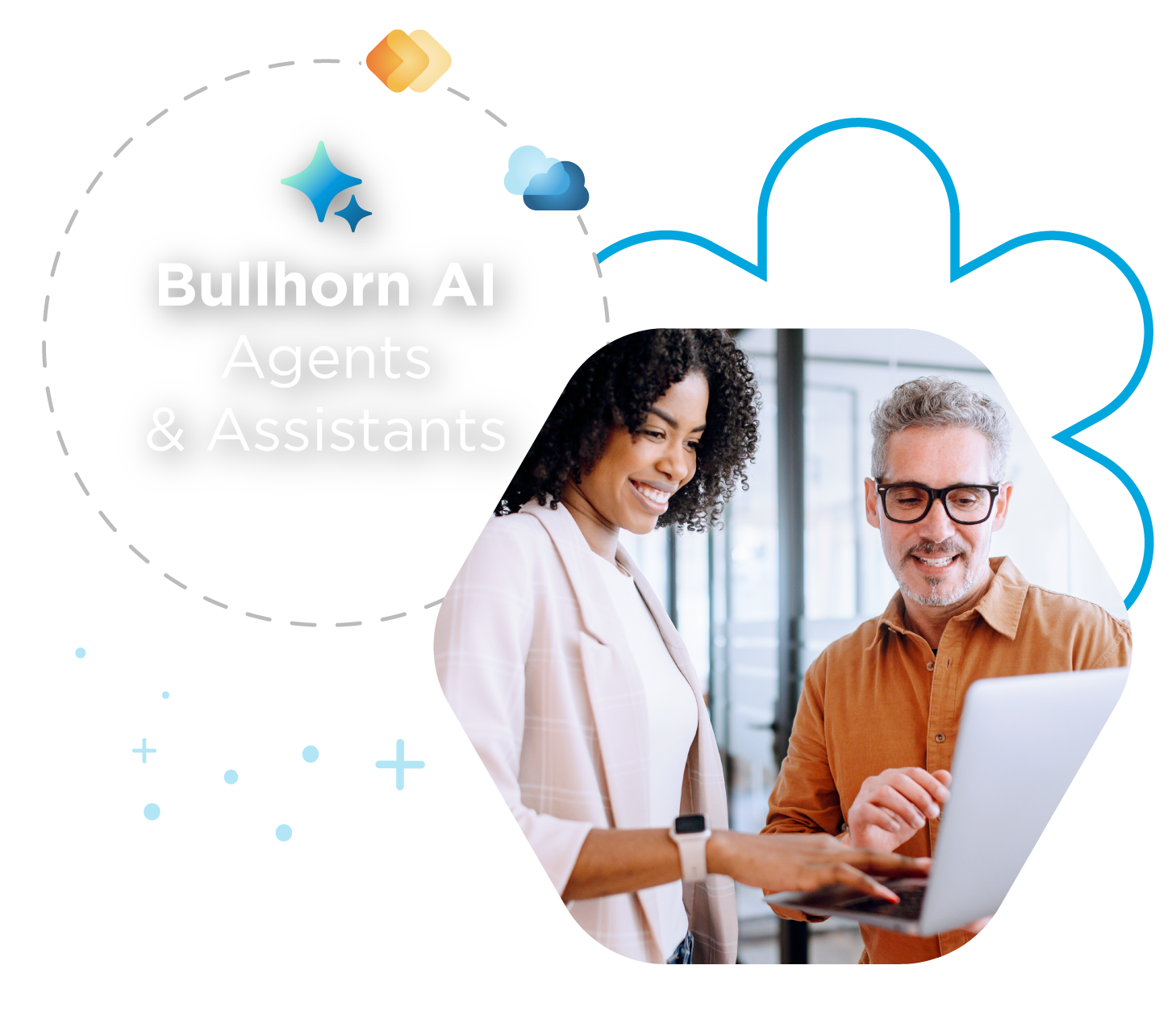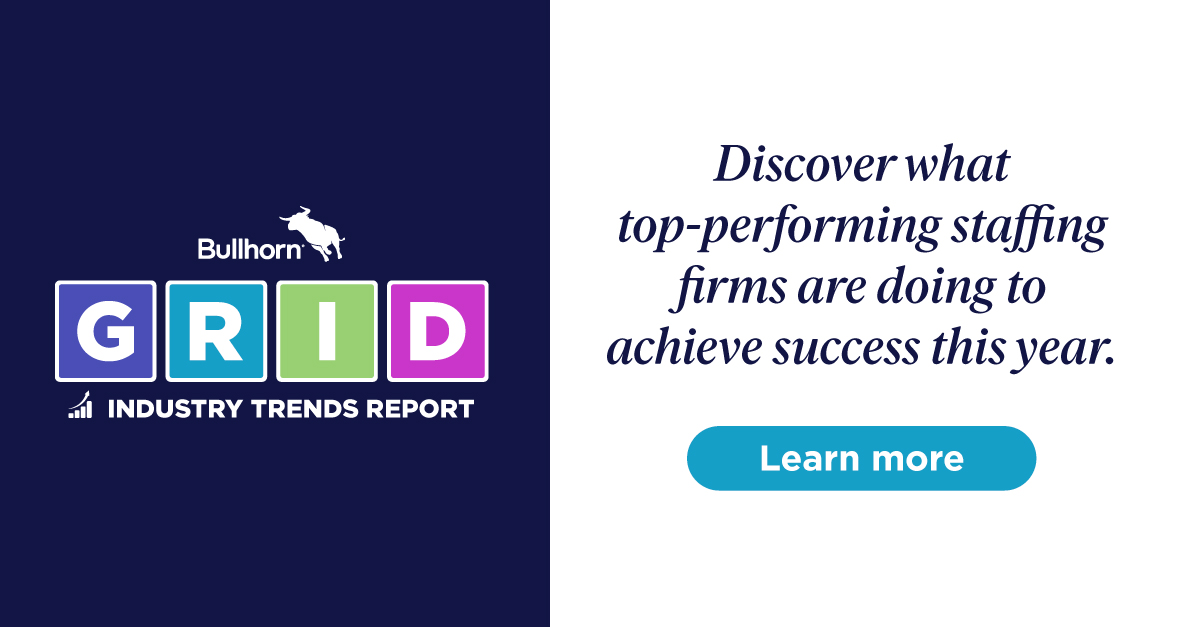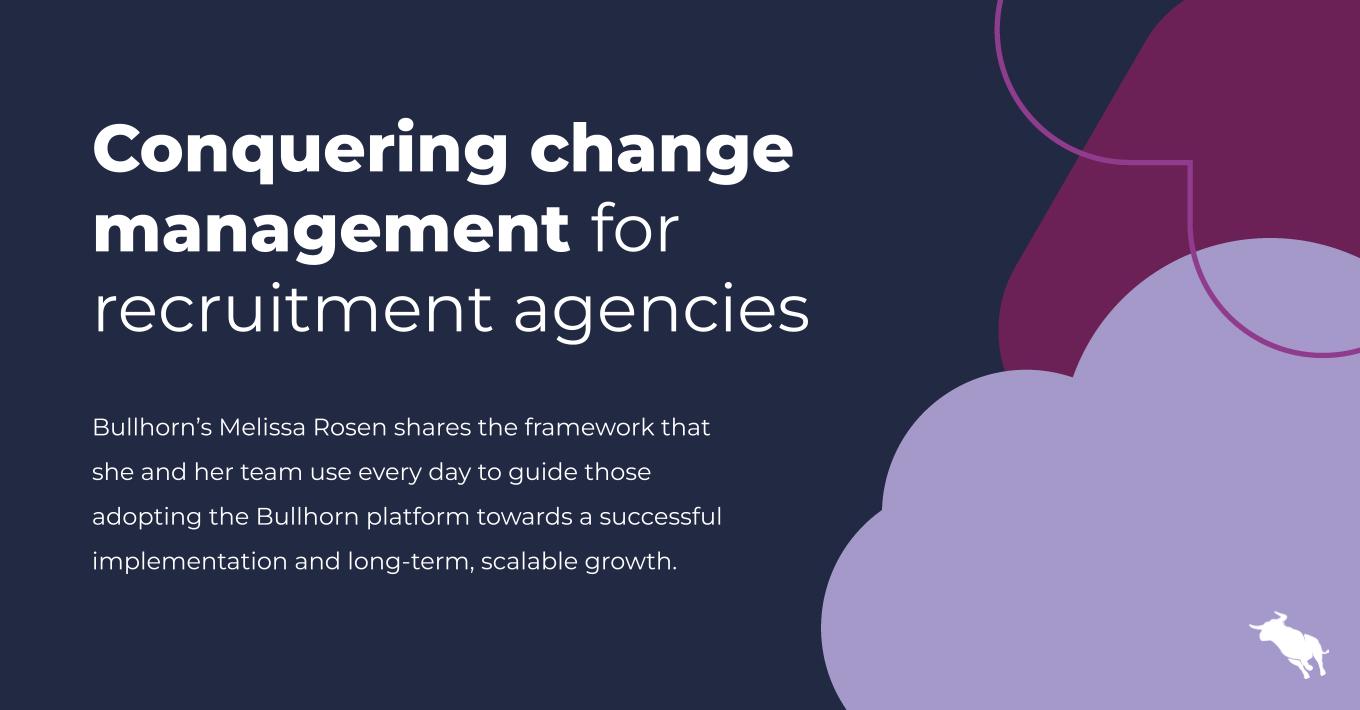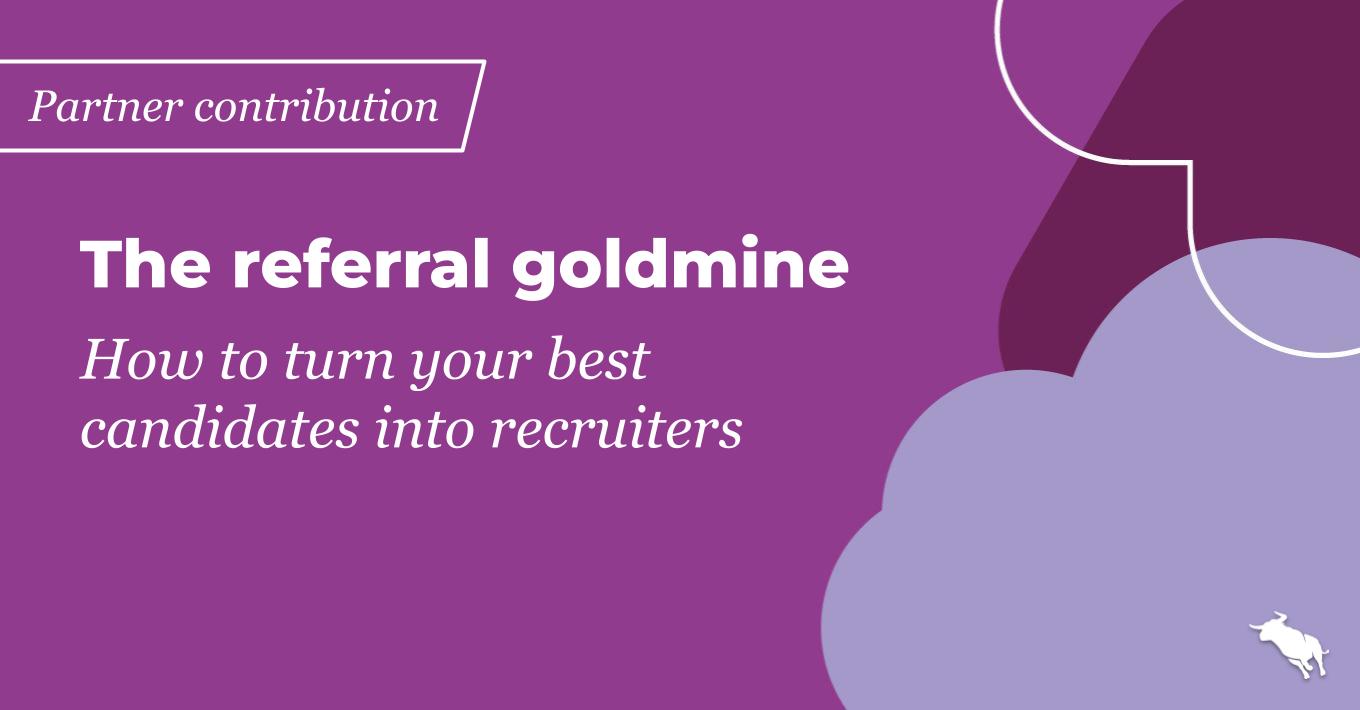3 common fears about staffing AI (and how to navigate them)
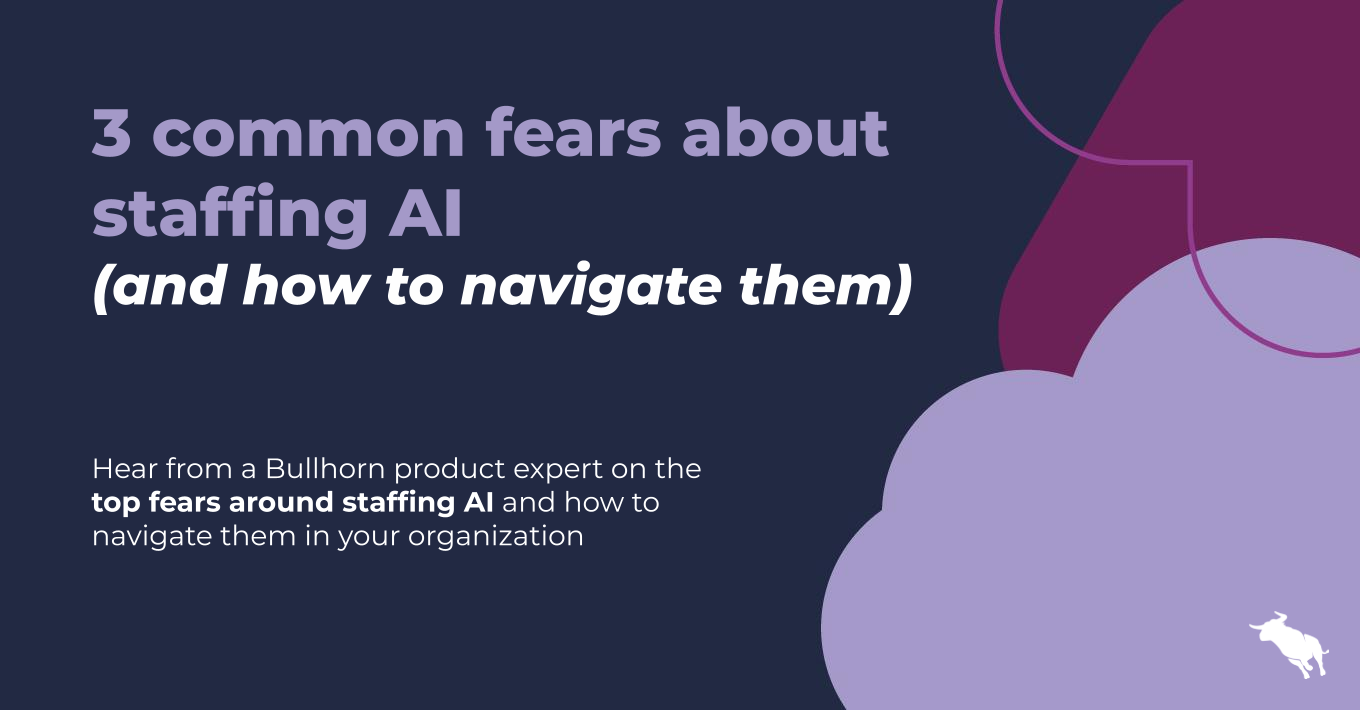
You can’t get through the day without seeing, hearing, using, or being affected by artificial intelligence. AI has been a part of our lives behind the scenes for a while, from Netflix recommendations to Amazon purchases and Pandora playlists.
ChatGPT enabled everyday people to experience generative, conversational AI in action. In staffing, implementing AI can be an undertaking and has led to hesitations and fears about the AI revolution.
As someone who talks to staffing professionals and Bullhorn customers daily, I wanted to share the biggest fears and questions I’m hearing and provide some guidance to help those in the industry navigate this innovative technology.
The fear of being left behind
Historically, the staffing industry has adopted technologies only after existing systems have broken down. Digitization progressed when lugging around banker boxes of resumes became unwieldy. Electronic onboarding paperwork was needed to meet the increased demand for immediate same-day job needs. Once these initial advantages take hold at a few firms, acceleration of adoption by the rest of the market occurs to maintain relevance.
AI is becoming one of the fastest adopted technologies because firms can’t afford to be left behind. They need to leverage AI to do more with less, to service when and where their clients and candidates want, and to figure out where to optimize.
Knowing where to leverage AI, how to integrate it, how to navigate compliance and security, and how to infuse it into your team’s processes is a journey you don’t want to take alone, but one that’s necessary since your competitors are already leveraging it.
The fear that the landscape of job openings is changing
Staffing is difficult, speed is paramount, recency is king, and expectations are constantly changing. Staffing clients are navigating their own AI journeys and how their skills and volume needs will change in some verticals. What new roles will clients have, and what new skills does your team need to fill them? What roles will no longer be required? How does your staffing firm adapt to fewer job orders with different skills?
Rather than worry about a decline in open jobs because AI is rendering those positions obsolete, I recommend that staffing firms use this as an opportunity to actually leverage the power of AI to get ahead of their competitors. Use AI to streamline operations internally so recruiters can focus on new AI-focused roles and niche positions. By doing so, firms can continue to play a vital role in helping their clients find and retain top talent while staying on top of the latest technologies and staffing trends.
Beyond the macro challenges, there has also been a change in how information is conveyed to candidates and how candidates work with recruiters. Candidates use generative AI to create resumes and cover letters and communicate with you. Recruiting teams are leveraging AI assistants to ensure consistent communication with candidates. How will you sort out the true voice of the individual and ensure you’re delivering the human touch at the right moments?
The fear of not proving a return on investment
In the current economy, few firms just throw money at shiny objects. “This is cool” doesn’t justify investment today. The monetization of AI is still evolving, but there are ways to approach AI that can set your team up for ROI success.
Understanding what moves the needle on efficiency, cost savings, and revenue generation requires more than just using a new feature. Firms need a redesigned approach to business processes by leveraging AI everywhere that is feasible to get incremental gains that add up to a significant difference to the bottom line.
Once AI is embedded in your recruitment process, use a test-and-learn approach to see where it’s making a difference in efficiency, effectiveness, and candidate and client experience.
Thankfully, Bullhorn has you covered and is ready to partner with you on your entire digital transformation journey, including intelligent infusion of AI throughout the hiring process.
To learn more about Bullhorn’s approach to AI, visit bullhorn.com/ai.
